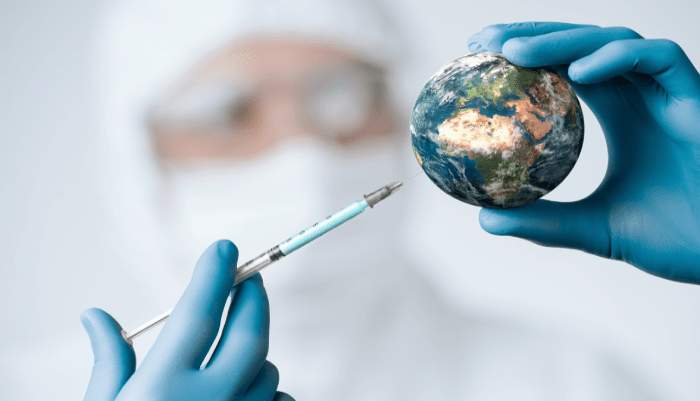Round Table on Intellectual Property: Vaccines and Patents
 WAITRO, the Africa Europe Innovation Partnership (AEIP), the WAITRO Regional Focal Points: Research Fairness Initiative (RFI) and the North-West University (NWU), successfully held the Round Table on Intellectual Property: Vaccines and Patents on June 30th. The round table was part of the AEIP Final Event.
WAITRO, the Africa Europe Innovation Partnership (AEIP), the WAITRO Regional Focal Points: Research Fairness Initiative (RFI) and the North-West University (NWU), successfully held the Round Table on Intellectual Property: Vaccines and Patents on June 30th. The round table was part of the AEIP Final Event.
The experts André J Maré, Pascale Boulet, Fatima Hassan and Hans Georg Bartels participated in the round table and shared their views on the vaccine intellectual property, technology transfer, equity and access. The event was introduced by HRH Princess Sumaya bint El Hassan – WAITRO President, who raised key questions regarding the rights of every country to manufacture vaccines during the pandemic as well as its restrictions, and moderated by Thyra de Jong – Public Policy Principal Evaluator and Health Specialist from the Technopolis Group.
According to Fatima Hassan – Health and Human Rights Lawyer and founder of Health Justice Initiative – “3% of the population on the African continent has been vaccinated with COVID-19 vaccine, while countries in the global north have been able to distribute COVID-19 vaccines to around 37 – 48% as they have sufficient supplies”. She also shared that the “IP and patent protection has shown more importance than human lives. Low-and middle-income countries (LMICs) are struggling with supply crises yet there is so much opposition to the waiver of the IP from the Global North.”
The Intellectual Property & Policy Advisor at Drugs for Neglected Diseases Initiative (DNDi), Pascale Boulet, highlighted the importance of collaborative partnerships for equitable access and affordability of treatment. She informed that the DNDi has an agreement with their partners based on a shared vision including worldwide research and manufacturing rights for targeted neglected disease for global equitable access.
Hans Georg Bartels – Senior Program Officer at WIPO (World Intellectual Property Organization) explained the role of IP as a method to assure a proper environment for the development of innovation and technology. Thus, he gave insights on how this works in a legal framework.
The outcomes of the pandemic were the focus of André J Maré – IP Director ENSafrica, who mentioned the possible learnings of “a massive spotlight in something that we’ve known to be an issue for a long time” from an IP perspective related to pharmaceuticals. From his point of view, this pandemic could be a perfect opportunity to discuss the misuse of IP Patents and the need for more equitable access to medicine.
The final Q&A session was a great opportunity for the participants to interact with the experts and deepen the debate. Concerns regarding public investment to develop medicines, the role of governments, ways to get informed about current patents, other incentives than patents for pharmaceuticals were voiced and discussed among the experts. Their presentations led to a lively round table of clear criticism of the current system, but also pointing out that there is much more to be considered about this issue than just IP.
Thyra the Jong closed the session highlighting the main common goal of the organizers as well as all panelists: to change a system and to ensure equal or at least more equal access to life-saving medicines. The key is collaboration.
If you missed the event, watch it here.
